
Innovation in motion
Innovating to master the elements at each stage
Beyond selection favouring the robustness, aesthetics and quality of our shellfish, our know-how lies in the mastery of elements allowing us to combine quality and quantity, while respecting the natural needs of our farms.
Our production tools
- A hatchery in a controlled environment
- Several nurseries in a semi-enclosed environment
- An outdoor oyster farm
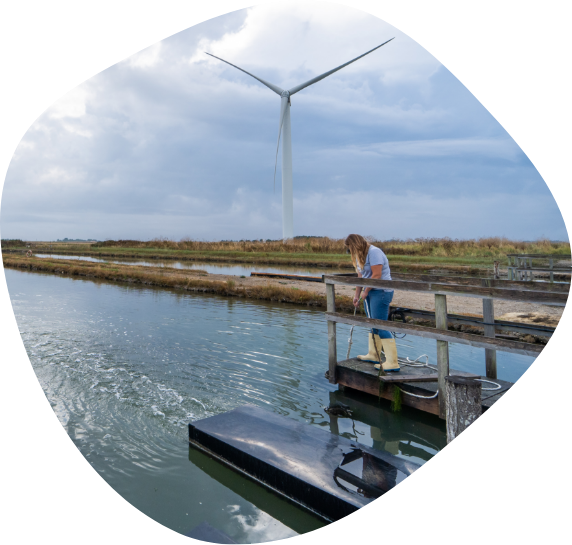
Sanitary water management
The nurseries are fed by the sea water bathing the island of Noirmoutier. This rich water promotes the development of spat in their natural environment. Its mastery, both qualitative and quantitative, guarantees that a homogeneous product is obtained.
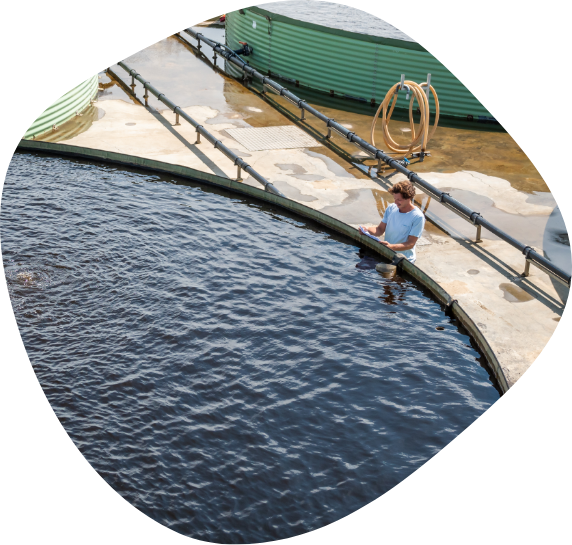
Phytoplankton cultivation
In order to guarantee the expected nutritional qualities, phytoplankton is cultivated within the hatchery itself. External cultures of micro-algae make it possible to obtain a food supplement intended for the micro-nursery and the nursery.
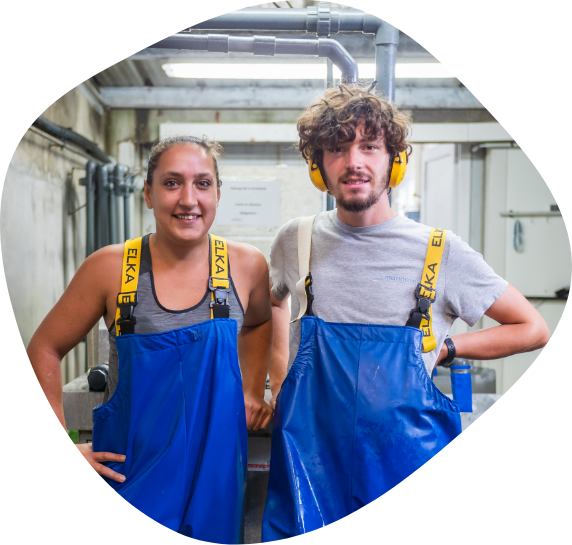
Passion and human skills
The passionate Marinove teams are specialised in R&D, biology and zootechnics. Cultivating the values of the trade, they work with humility and professionalism to put innovation at the service of quality each day.
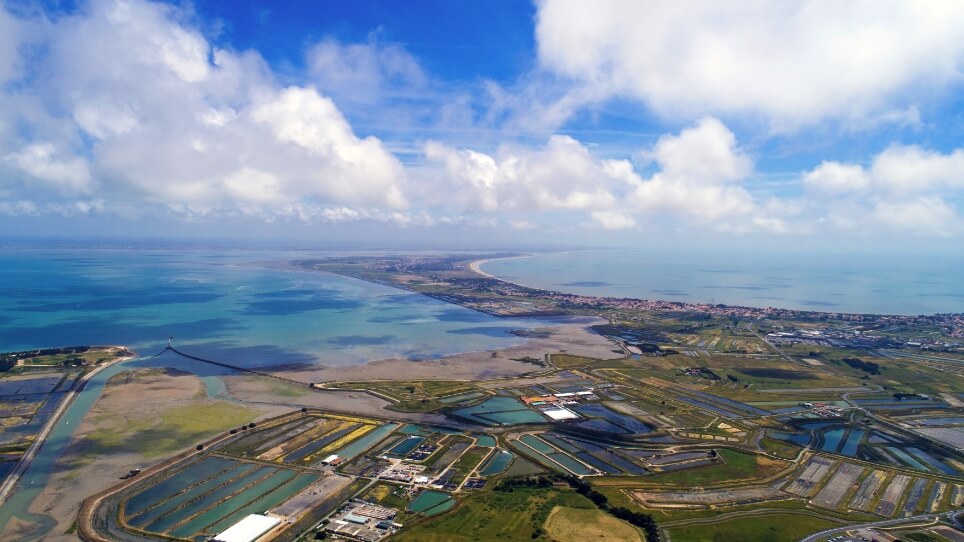
Managing our environment, with attention and care
Located at the heart of an exceptional natural site on the island of Noirmoutier as well as on the Polder de Bouin, Marinove is committed to responsible development of shellfish farming. For the health of the animals and the quality of their food, each day we ensure the controlled management of our environment.
Growing a quality diet
Various micro-algae are cultivated, all in borehole water (saline groundwater), to feed the larvae and spat. Two of them are grown indoors in appropriate rooms, specialised for plant cultures. An outdoor phytoplankton culture feeds the spats in micro-nurseries and nurseries.
Manage and control water flows
- The sea water used for the animals is pumped into a channel at high tide, then matured in our specific reserve. For its use in hatcheries (larval breeding, micro-nursery), it is finely filtered and treated with a UV lamp.
- Outside, the water from the nursery is matured and lagooned on two hectares of reserve. The maturation of the water, its partial renewal each day and daily monitoring of its quality allow the spat to develop in an environment that best meets their requirements.
- Our laboratory allows us to check the physicochemical parameters of the water each day; a second laboratory allows bacteriological monitoring of the water and all breeding.
Controlling discharges and managing waste
Just like inputs, discharges are qualitatively and quantitatively managed, whether by specific filtration or lagooning. We also measure the quality of what enters and leaves our breeding installations.
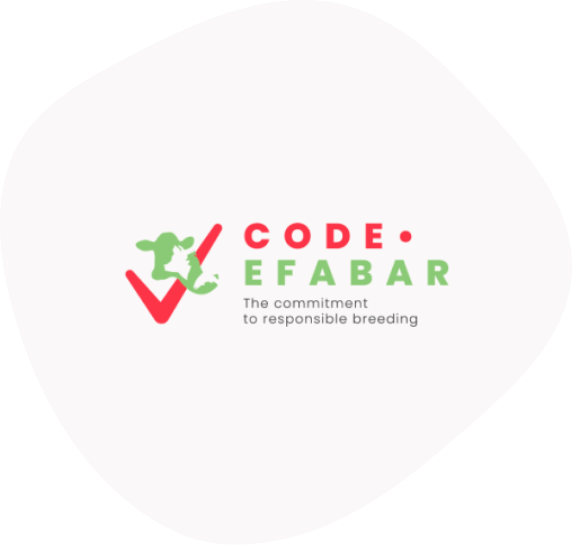
Marinove Code-EFABAR certified since 2022
Code-EFABAR is the commitment to responsible breeding of farm animals. It is designed to provide farmers with a practical guide to help achieve a sustainable and balanced breeding farm while providing greater transparency to society as a whole. Code-EFABAR is a voluntary code of good practice used by EFFAB members as part of their commitment to best practice. Use of this code demonstrates that farmers practice responsible agriculture.
Code-EFABAR is based on codes of good practice to ensure the best health and welfare of animals, food safety and public health, resource efficiency, reduction of environmental impact, and product quality.
